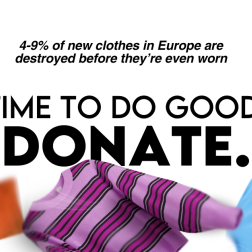
- 6 mins read time
- Published: 20th November 2023
RICHEST 1% EMIT AS MUCH PLANET-HEATING POLLUTION AS TWO-THIRDS OF HUMANITY – OXFAM
Carbon emissions of richest 1 per cent surged to 16 per cent of world’s total CO2 emissions in 2019 - enough to cause 1.3 million excess deaths due to heat
The richest 1 per cent of the world’s population produced as much carbon pollution in 2019 as the five billion people who made up the poorest two-thirds of humanity, according to a report published by Oxfam today ahead of the UN Climate Summit, COP28.
The report, Climate Equality: A Planet for the 99%, is based on research with the Stockholm Environment Institute (SEI). It assesses the consumption emissions of different income groups, highlighting the stark gap between the carbon footprints of the super-rich —whose carbon-hungry lifestyles and investments in polluting industries like fossil fuels are driving global warming— and the rest of the world.
The study shows there is also vast inequality in how the impacts of the rapidly changing climate are felt. It is people living in poverty; marginalised groups such as women and Indigenous Peoples; and low-income countries, who have done the least to cause it, who are suffering the worst consequences – and who are least able to respond or recover.
With climate change driving a rise in world temperatures, deaths from heat are set to increase dramatically, particularly in low-income countries. The report reveals the outsized emissions of the richest 1 per cent will cause 1.3 million heat-related excess deaths - roughly equivalent to the population of Dublin - with most of these deaths occurring between 2020 and 2030.
Chiara Liguori, Oxfam’s Senior Climate Justice Policy Advisor said: “The super rich are plundering and polluting the planet to the point of destruction and it is those who can least afford it who are paying the highest price. The huge scale of climate inequality revealed in the report highlights how the two crises are inextricably linked - fuelling one another - and the urgent need to ensure the rising costs of climate change fall on those most responsible and able to pay.
“The gap between the super-rich and the rest of us is stark. It would take about 1,500 years for someone in the bottom 99 per cent to produce as much carbon as the richest billionaires do in a year. This is fundamentally unfair.
“Governments globally, including the Ireland's, need to tackle the twin crises of inequality and climate change, by targeting the excessive emissions of the super-rich by taxing them more. This would raise much needed revenue that could be directed to a range of vital social spending needs, including a fair switch to clean, renewable energy as well as fulfilling our international commitments to support communities who are already bearing the brunt of the climate crisis.”
Key findings from the report also show:
- The richest 1 per cent (77 million people) were responsible for 16 per cent of global consumption emissions in 2019 —more than all car and road transport emissions. The richest 10 per cent accounted for half (50 per cent) of emissions.
- It would take about 1,500 years for someone in the bottom 99 per cent to produce as much carbon as the richest billionaires do in a year.
- Since the 1990s, the richest 1 per cent have burned through more than twice as much carbon as the bottom half of humanity.
- The carbon emissions of the richest 1 per cent are set to be 22 times greater than the level compatible with the 1.5°C goal of the Paris Agreement in 2030. By contrast, the emissions of the poorest half of the global population are set to remain at one-fifth of the 1.5°C compatible level.
- Every year, the emissions of the richest 1 per cent cancel out the carbon savings coming from nearly one million wind turbines.
- The death toll from floods is seven times higher in the most unequal countries compared to more equal ones.
Oxfam analysis shows that that the long-term impacts of a changing climate, such as chronically lower crop yields or water scarcity, have already become a reality - yet the richest countries and the richest people are the most insulated from the climate catastrophe they have caused. Around the world, soaring food prices spell out a future of hunger and malnutrition for people living in, or at risk of, poverty, while the richest are able to absorb these additional costs.
Liguori added: “Climate change is a burden not shared equally. Governments can and must act now. Like elsewhere, the climate crisis is exacerbating existing inequalities in Ireland, and it will continue to do so unless the government accelerates the move to a fossil fuel free future, ensuring the biggest polluters, and those with the most wealth, are the ones who foot the bill. What is needed from the Irish Government is the political courage to make them pay their fair share for the damage they have caused, and ensure that the costs do not fall on lower-income households.”
Recent Oxfam research in the UK has also shown that the UK Government there could have raised up to £23 billion last year alone if it had implemented a series of common-sense taxes on the country's biggest polluters – namely fossil fuel companies and the extremely rich.
Oxfam calculates that a global 60 per cent tax on the incomes of the richest 1 per cent would cut emissions by more than the total emissions of the UK and raise £5.2 trillion ($6.4 trillion) a year to pay for the transition away from fossil fuels to renewable energy.
Ends
Notes to editors:
Download Climate Equality: A Planet for the 99% and the methodology note
The Stockholm Environment Institute’s Emissions Inequality Dashboard is also available for consultation.
The report is based on research with the Stockholm Environment Institute (SEI) and assesses the consumption emissions of different income groups in 2019, the most recent year for which data is available.
Dublin’s population is 1.4 million, according to Ireland’s Central Statistics Office.
According to Our World in Data, road transport accounts for 15 per cent of total CO2 emissions.
For the stat - it would take about 1,500 years for someone in the bottom 99 per cent to produce as much carbon as the richest billionaires do in a year - according to SEI’s research, a person in the bottom 99 per cent emits on average 4.1 tons of carbon a year (based on average for the 99 per cent globally). Richard Wilk and Beatriz Barros’ study of 20 of the world’s billionaires found that they emitted on average 8,194 tons CO2 equivalent per year. This includes all greenhouse gases, so when converted to CO2, this is approximately 5,959 tons CO2. 5,959 divided by 4.1 is 1,453.
Oxfam’s research has shown that the investments of just 125 billionaires emit 393 million tonnes of CO2e each year —the equivalent of France— at an individual annual average that is a million times higher than someone in the bottom 90 per cent of humanity.
Oxfam water engineers are having to drill deeper, more expensive and harder-to-maintain water boreholes used by some of the poorest communities around the world, more often now only to find dry, depleted or polluted reservoirs. One in five water boreholes Oxfam digs now is dry or unfit for humans to drink.
According to the UN, more than 91 per cent of deaths caused by climate- and weather-related disasters over the past 50 years occurred in the Global South. Evidence shows that inequalities between rich and Global South countries are already 25 per cent larger than they would be in a world without global warming.
The World Bank has proposed to set a standard of prosperity at $25 per day.




